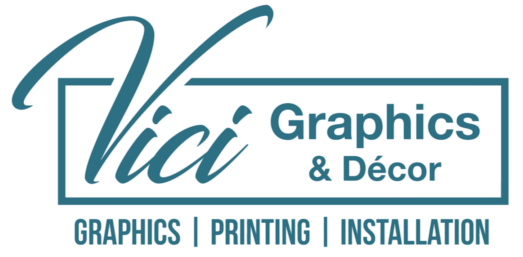FAQS
Form Board
What is foam board?
Foam board, also known as foamcore, is a lightweight yet sturdy material composed of polystyrene foam core sandwiched between two outer layers of paper or plastic.
What are the applications of foam board?
Foam board is widely used for various applications, including mounting photographs and artwork, crafting models, creating presentations, making signs, and other DIY projects due to its smooth surface that allows excellent adhesion for glues, paints, and inks.
What are the key features of foam board?
Foam board is lightweight and easy to handle, offering a balance of rigidity and flexibility, which helps to prevent warping over time.
Is foam board waterproof?
Foam board has a level of water resistance but isn’t completely waterproof. Extended exposure to moisture can result in warping or other damage.
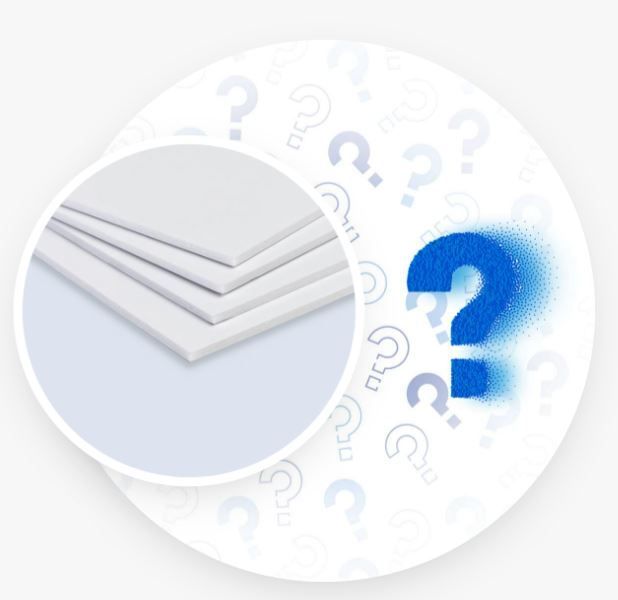
Ultra Board
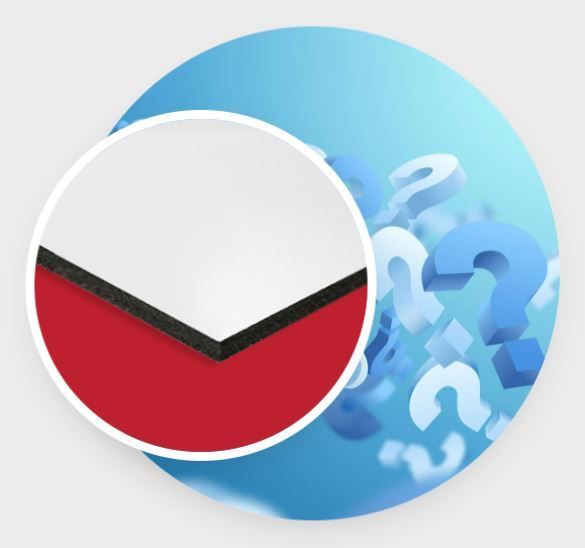
What is Ultra Board?
Ultra Board is a premium version of foam board, with a denser, more rigid foam core, and surer, more strong outer surfaces made of plastic or styrene.
What are the applications of Ultra Board?
Due to its superior durability, Ultra Board is typically used for more demanding projects such as long-lasting signage, point-of-purchase displays, and high-quality exhibition graphics.
What are the key features of Ultra Board?
Ultra Board is exceptionally durable and much more moisture-resistant compared to the traditional foam board. Its outer surfaces are well-suited to high-quality printing.
Is Ultra Board waterproof?
Although Ultra Board has a better resistance to moisture than foam board, it isn’t entirely waterproof—and long-term exposure to water can lead to damage.
Gator Foam
What is Gator Foam?
Gator Foam, also known as Gator Board, is a heavy-duty foam board characterized by a more robust, denser foam core, offering greater durability and rigidity than standard foam board.
What are the applications of Gator Foam?
Gator Foam is used for more demanding applications, such as mounting large photographs, creating sturdy displays and signs, and other heavy-duty projects.
What are the key features of Gator Foam?
Gator Foam stands out for its superior durability, rigidity, and impact resistance. Its surface is also more resistant to scratches and dents.
Is Gator Foam waterproof?
Gator Foam offers greater water-resistance compared to foam boards but isn’t entirely waterproof. Extended contact with water can still cause damage.
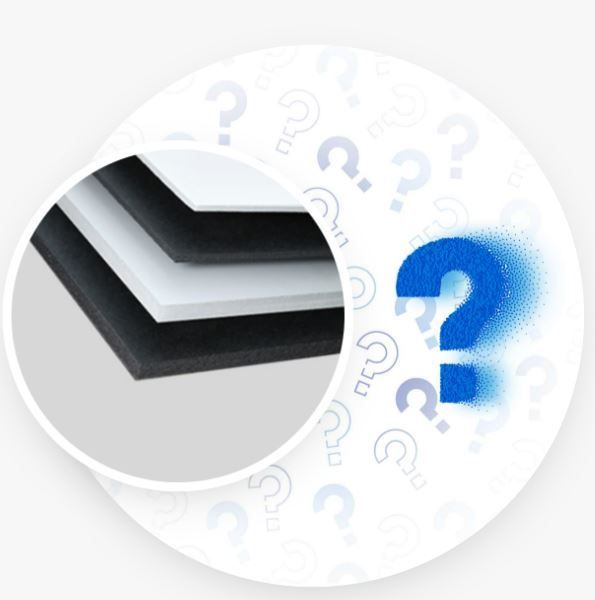
Coroplast
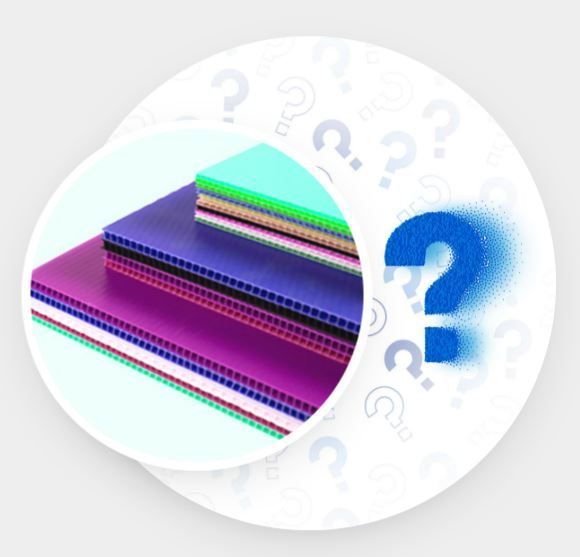
What is Coroplast?
Coroplast, short for corrugated plastic, is a durable and lightweight material. It’s similar to corrugated cardboard but made with plastic.
What are the applications of Coroplast?
Coroplast is widely used for indoor and outdoor signage such as yard signs, real estate signs, and campaign signs. It’s also used for packaging and construction applications due to its durability.
What are the key features of Coroplast?
Coroplast is noted for its lightweight, strength, durability, and it being cost-effective. It’s resistant to water, impact, and UV-radiation.
Is Coroplast waterproof?
Yes, Coroplast is entirely waterproof, which is why it’s often used for outdoor signage that will be exposed to the elements.
Plywood
What is plywood?
Plywood is a strong type of engineered wood made from multiple layers (or ‘plies’) of wood veneer that are glued and pressed together under high heat.
What are the applications of plywood?
Plywood is commonly used in construction and furniture making, as well as for creating signages, thanks to its rigid, smooth surface that’s perfect for painting or attaching other materials.
What are the key features of plywood?
Plywood offers excellent strength, stability, and affordability. Its layered structure provides outstanding resistance to cracking, twisting, and warping.
Is plywood waterproof?
While some types of plywood have a water-resistant coating, it’s generally not fully waterproof. Prolonged exposure to moisture can lead to warping or delamination.
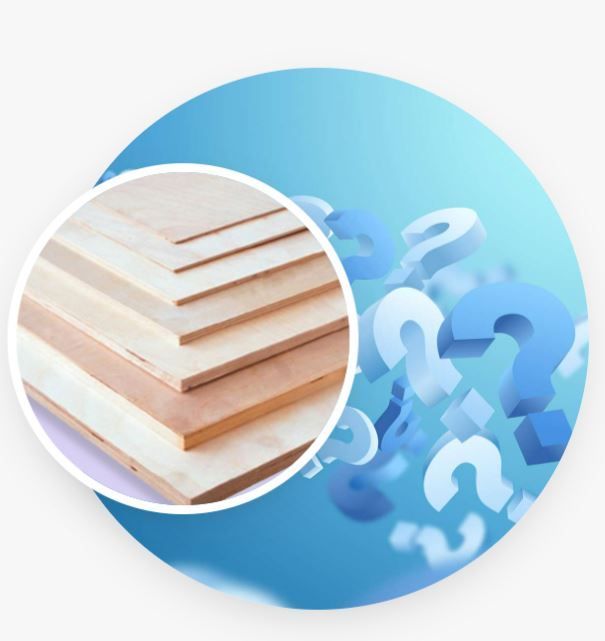
Acrylic
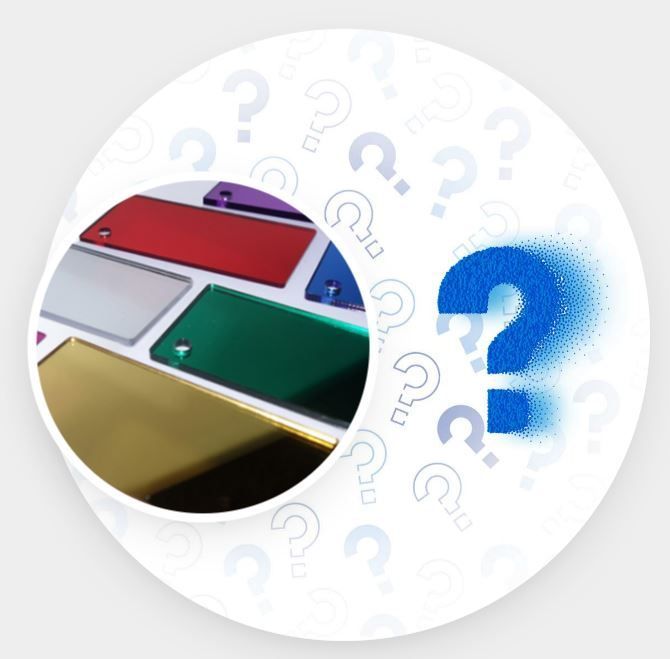
What is acrylic?
Acrylic, known as plexiglass or lucite, is a strong, lightweight, shatter-resistant type of plastic that offers high light transmissivity, making it an excellent substitute for glass.
What are the applications of acrylic?
Acrylic’s various uses include signages, display cases, furniture, window glazing, and many other creative applications.
What are the key features of acrylic?
Acrylic is known for its clarity, providing a clearer view than glass while being approximately half the weight. It’s also more robust, making it resistant to shattering.
Is acrylic waterproof?
Yes, acrylic is completely waterproof and can resist weathering, making it suitable for both indoor and outdoor use.
PVC
What is PVC?
PVC, or polyvinyl chloride, is a type of plastic noted for its strength, durability, and resistance to weather and chemicals.
What are the applications of PVC?
Hard-wearing and rigid, PVC is ideal for a range of indoor and outdoor applications, including durable signage, display boards, graphic prints, and exhibition panels.
What are the key features of PVC?
PVC is tough and resistant to UV light, weather conditions, and chemicals, making it an excellent option for outdoor signage and displays. Its smooth surface is perfect for printing and comes in a variety of thicknesses.
Is PVC waterproof?
Yes, a key characteristic of PVC is its total resistance to water. This makes it particularly suitable for outdoor settings or environments exposed to moisture.
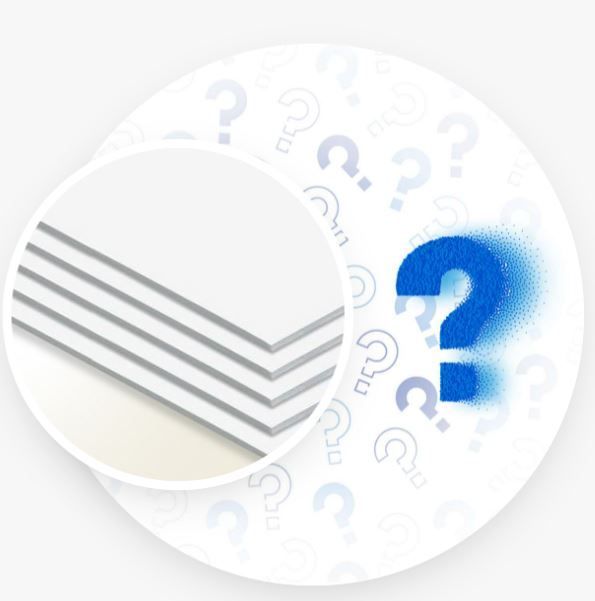
MDO (Medium Density Overlay)
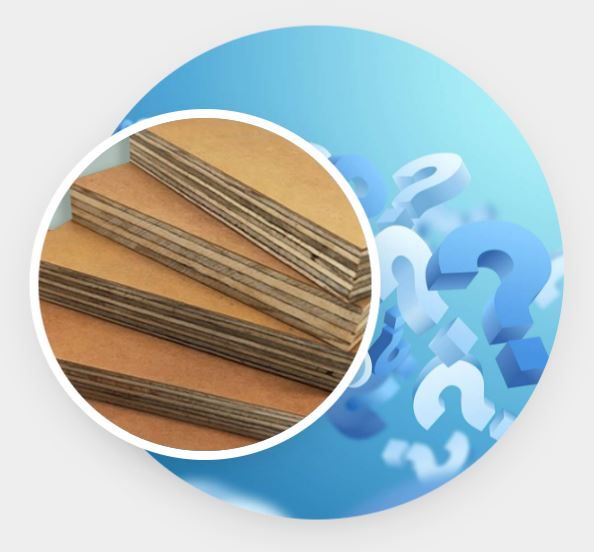
What is MDO?
MDO, or Medium Density Overlay, is a type of plywood that consists of a weather-resistant resin overlay bonded to the surface of the wood under heat and pressure. The overlay enhances the durability and makes it smoother and easier to paint.
What are the applications of MDO?
MDO is ideal for outdoor signs, worksites, and other long-term exterior applications. It is also used in the construction industry for siding and concrete forms appreciating its strength and weather-resistance.
What are the key features of MDO?
MDO boasts excellent weather and water resistance due to its overlay. It provides a smooth, paint-ready surface, which is faster, easier, and requires less paint or ink than standard plywood. Some MDO boards come with an overlay on both sides, increasing their durability and offering even more protection from the elements.
Is MDO waterproof?
MDO’s surface is waterproof due to the resin overlay, but its edges and back are not. Therefore, it’s crucial to seal these parts to prevent water seepage, damage, or delamination if used outdoors.
Aluminium
What is aluminum?
Aluminum is a lightweight, versatile, and robust metal known for its high strength-to-weight ratio, excellent corrosion resistance, and relatively low cost.
What are the applications of aluminum?
Aluminum is used in a wide range of industries and applications, including construction, automotive, aerospace, and electronics. In the signage industry, aluminum is commonly used for creating long-lasting outdoor signs, billboards, and directories.
What are the key features of aluminum?
Aluminum is lightweight, strong, and corrosion-resistant, making it suitable for both indoor and outdoor applications. It’s also low maintenance and can be easily shaped and printed on.
Is aluminum waterproof?
Yes, aluminum is corrosion-resistant and completely waterproof, making it an excellent material for outdoor signage and various applications exposed to moisture or harsh weather conditions.
ACM (Aluminum Composite Material)
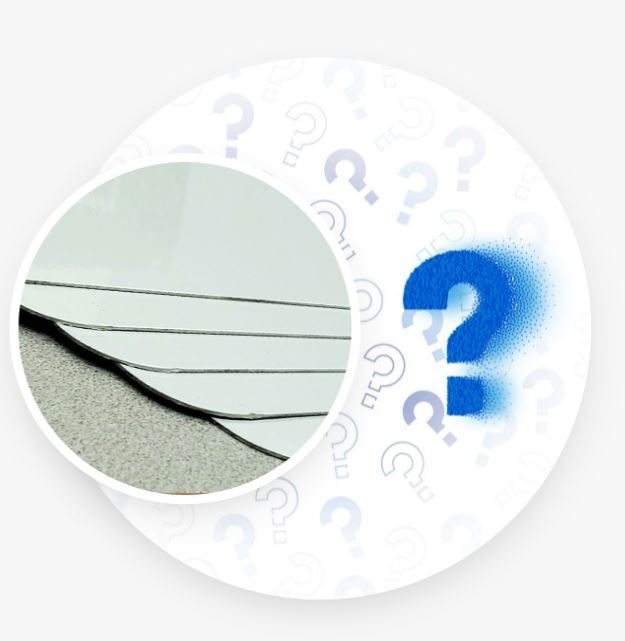
ACM

What is ACM?
ACM, or Aluminum Composite Material, is a composite panel made by laminating two thin aluminum sheets to a non-aluminum core, usually a thermoplastic material such as polyethylene. This creates a lightweight, yet rigid and flat sandwich panel.
What are the applications of ACM?
ACM is used for various applications, including signage, billboards, exhibition stands, displays, and building cladding. It’s popular for its unique combination of strength, lightness, and durability.
What are the key features of ACM?
ACM offers excellent strength, rigidity, and durability while remaining lightweight. It maintains a high level of flatness, has excellent weather resistance, and provides easy fabrication for various applications.
